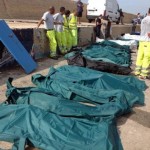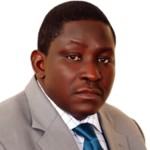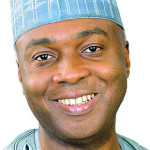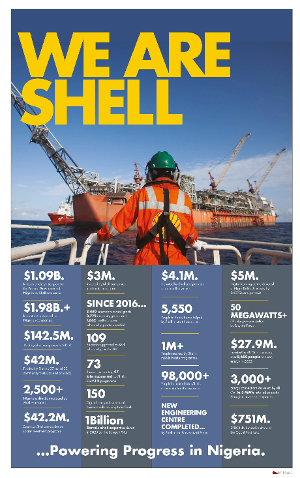Confab Offers Panacea For Resource Curse Syndrome In Africa Countries
African News, Latest Headlines Wednesday, March 1st, 2023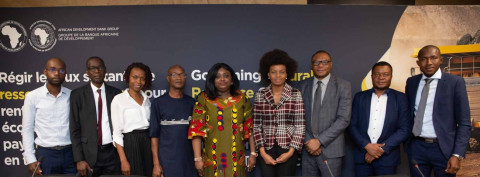
(AFRICAN EXAMINER) – Participants at the just concluded workshop on harnessing Africa’s abundant natural resources, have proffered wide-ranging recommendations to overcome the problems militating against resource-rich countries in the continent.
Such impediments which have been popularly tagged as “resource curse sydrome”, has denied resource-rich nations, including those in Africa, the chance of enjoying the benefits of their resources.
The two-day hybrid inception and learning workshop was the African Development Bank (AfDB). The bank also used the opportunity to introduce its Governing Natural Resource Outflows for Enhanced Economic Resilience in Fragile and Transitional Countries (GONAT) Project.
The event was attended by representatives of governments, the private sector, civil society and multilateral development organizations. It comprised presentations by experts and panel discussions to explore specific challenges.
GONAT is a roughly $2.7 million initiative that will build national capacity for governing natural resource outflows by addressing resource-backed loans and the illicit natural resources trade in 6 countries over two years. The countries are: Central African Republic, Chad, Democratic Republic of the Congo, Mozambique, Sierra Leone and Zimbabwe.
Africa has a wide range of natural endowments including its fisheries, minerals, fossil fuels and timber. These resources are seen as an increasingly important element of economic activity and source of domestic revenues, especially as African governments face fiscal constraints linked to global economic conditions.
Acting Director of the African Natural Resources Management and Investment Centre, Vanessa Ushie said that GONAT is a direct response to the challenge of establishing good governance of Africa’s natural resources.
According to her, it has been designed to support transitional countries to mobilize greater natural resource rents and ensure that they can realize the full value of their natural resources.
A representative of Rand Stanton Consulting Group, Kathy Nicolaou-Manias provided some context on the resource wealth of Africa, which has 40 precent of the world’s gold reserves and the largest deposits of cobalt, diamonds, platinum and uranium globally.
“Cobalt in particular is seen as increasingly valuable as a key component of the lithium ion batteries that power electric cars and smartphones”, she added.
Nicolau-Manias also observed that the twin challenges of illicit fund flows and illicit trade siphon off considerable revenues derived from exploitation of natural resources, adding that former is driven by corruption and tax evasion
“The most highly trafficked illegal commodities in Africa are petroleum, precious minerals and ores”, she stressed.
Africa Acting Director of the Natural Resource Governance Institute, Nafi Chinery noted that a multipronged approach is necessary to address governance issues in the resource sector.
In addition to making extractive-sector contracts public she said local communities in affected areas should be included in the process of resource exploitation.
She also warned that a rapid energy transition would hurt demand for African petroleum, causing oil revenue in Nigeria, Angola and other countries to fall by as much as 70 percent.
Francophone Africa Regional Director with the Extractive Industries Transparency Initiative, Nassim Bennani, said efforts to strengthen governance and tapping of resources must be driven by data.
AfDB’s Director for Governance and Economic Reforms Abdoulaye Coulibaly cited the bank’s Strategy for Economic Governance in Africa, released in 2021, as a vital tool for strengthening governance.
Similarly, the bank country managers in the six GONAT countries closed the first day by providing an overview of the country’s efforts to sustainably exploit resources.
Central African Republic country manager Mamady Souare commended the African Legal Support Facility for its support in updating the country’s mining code.
Indian Ocean Tuna Manager at World Wildlife Fund Mozambique, Umair Shahid said more should be done to engage the youth in efforts to sustainably exploit resources, including, incorporating the issue into school curricula. He also cited indigenous knowledge and south-south cooperation as useful.
Notably, GONAT has three components: policy analysis and diagnostics; capacity building and country support; and Policy Dialogue and Knowledge Exchange. Under the first component, the GONAT team will produce diagnostic reports and policy briefs on the illicit natural resource trade and resource-backed loans in the six participating countries.
The diagnostic reviews will inform customized training programs for 150 beneficiaries: 25 selected policy officials in each of the six countries. Peer learning and knowledge exchange will be facilitated through a virtual knowledge hub.
Related Posts
Short URL: https://www.africanexaminer.com/?p=85764



